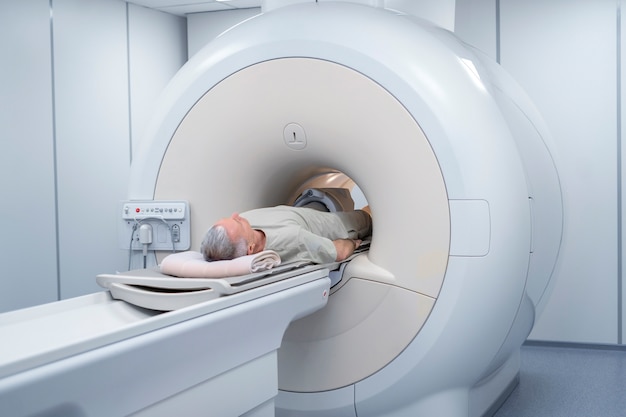Artificial Intelligence Software Cuts Prostate MRI Read Times by 56%
Posted on 08 May 2023
Multiparametric MRI (mpMRI) serves as a noninvasive triage tool that can not only detect clinically significant prostate cancer (csPCa) lesions but also provide information on locoregional staging and biopsy. When combined with serum prostate-specific antigen (PSA) tests, an "MRI diagnosis pathway" may help reduce excessive biopsies and overtreatment of indolent lesions. CAD systems can improve radiologists' diagnostic performance and minimize interpretation inconsistencies. While many studies suggest that AI-based CAD systems have potential clinical utility in csPCa detection, their generalization and performance on outside datasets have not been thoroughly explored.
Now, a study by researchers at Peking University First Hospital (Beijing, China) has found that AI software can decrease false positive reports of csPCa while also reducing radiologist read times. Using proprietary deep learning-based AI software, radiologists were able to halve their read times when interpreting mpMRI scans of patients with suspected prostate cancer, dropping from 423 to 185 seconds per exam. Additionally, the AI software improved sensitivity and specificity. The study's significance lies in the testing method, as it involved 11 different MRI systems from three institutions, demonstrating the software's reproducibility and real-world utility, which has been lacking in previous CAD system studies.

In the study, 480 mpMRI images with 349 csPCa lesions in 180 cases were used. Sixteen radiologists with varying experience levels from four hospitals participated, interpreting scans with and without the software before reinterpreting the same scans four weeks later in switched mode. The software increased sensitivity from 40.1% to 59.0% and specificity from 57.7% to 71.7%. It also reduced reading times by 56.3% and improved diagnostic confidence scores from 3.9 to 4.3. Despite the study's limitations, the researchers believe their results indicate how the AI software could benefit patients and providers in real-world clinical situations.
“The strength of our study is that the external data were collected from three different medical institutions,” the team noted. “The mpMRI images were acquired using a total of 11 different MR devices with some variation in scan parameters. Thus, the data are very heterogeneous, which is a challenging task for AI algorithms.”














